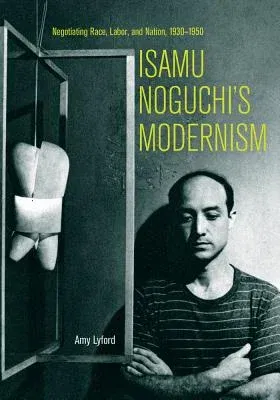Amy Lyford
(Author)Isamu Noguchi's Modernism: Negotiating Race, Labor, and Nation, 1930-1950Paperback, 2 March 2018

Qty
1
Turbo
Ships in 2 - 3 days
Only 1 left
Free Delivery
Cash on Delivery
15 Days
Free Returns
Secure Checkout

Print Length
294 pages
Language
English
Publisher
University of California Press
Date Published
2 Mar 2018
ISBN-10
0520298497
ISBN-13
9780520298491
Description
Product Details
Author:
Book Format:
Paperback
Country of Origin:
US
Date Published:
2 March 2018
Dimensions:
25.15 x
17.78 x
2.29 cm
ISBN-10:
0520298497
ISBN-13:
9780520298491
Language:
English
Pages:
294
Publisher:
Weight:
635.03 gm